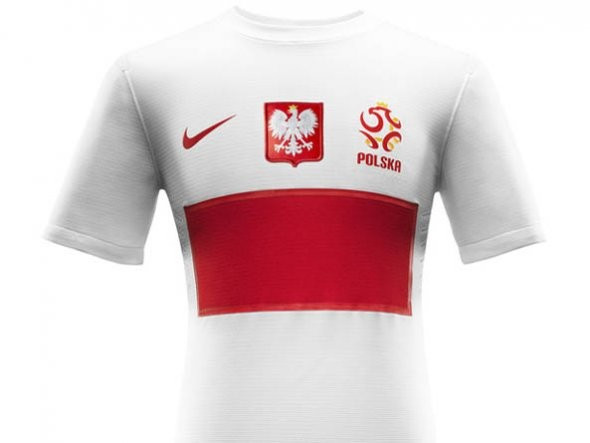Euro 2012 News: Supporters Warned against Buying Toxic Jerseys
If you buy a jersey to support your country at this month's European Championships, you could be risking your health

If you buy a jersey to support your country at this month's European Championships, you could be risking your health, according to the European Consumers' Organisation (BEUC), a consumer watchdog.
In an embarrassing turn of events for UEFA and the affected countries, the BEUC have issued a warning to football supporters against buying jerseys of nine nations competing at Euro 2012 after research discovered their shirts contained toxic chemicals.
Research into the chemicals used in the official team strips for Poland, Spain, Germany, Russia, Ukraine, Italy, France, the Netherlands and Portugal showed the shirts contained worryingly high levels of chemicals.
"Host country Poland's shirt should be banned outright from shops as it contains an organotin compound, used to prevent sweat odour, in higher doses than the legal limit. Organotin can be toxic to the nervous system," read a statement released by the BEUC.
Meanwhile, lead was found in the shirts of Spain, Germany, Ukraine, Russia, France and Italy. In fact, in those for players from Spain and Germany, the level exceeded the legally permissible amount for children's products.
Cristiano Ronaldo, Robin van Persie and their, respectively, Portuguese and Dutch team mates will have to make do with shirts containing nickel.
Another chemical, nonylphenol - which is banned from waste water because of harmful effects on the environment - was found in shirts to be worn by Fernando Torres, Mario Balotelli and the Spanish and Italian squad members at the summer's tournament in Ukraine and Poland.
"Football fans pay up to €90 (£73) for the shirt of their favourite team. The least they should expect is to have a quality and safe product. It is inexplicable that heavy metals are used in mass consumer products. It is clearly foul play by manufacturers to use substances harmful to both people and the environment," said BEUC director-general Monique Goyens, adding, "Our members' test results are a sad reminder that Europe's chemicals legislation is unfit for the purpose of banning dangerous substances from consumer products."
BEUC stated the forthcoming review of REACH - the current EU chemicals legislation - will help to tighten controls against potentially harmful and toxic chemicals in retail goods. Goyens said this would be an opportunity for the EU to go on the offensive against harmful chemicals.
© Copyright IBTimes 2025. All rights reserved.





















